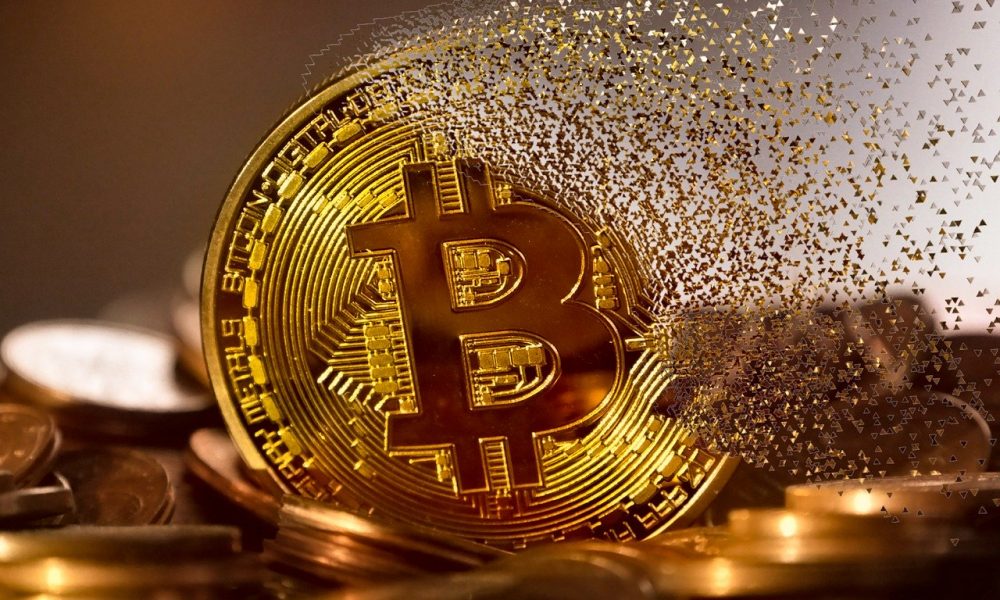
Defining Bitcoin and cryptocurrencies in mainstream terms has never been easy. After all, how can it ever be? Cryptocurrencies are revolutionary, they were never meant to be confined to the traditional definition of concepts. The example of how difficult it has been to define cryptocurrencies in legal terms is a case in point.
However, whenever law and Bitcoin are spoken of in the same sentence, most of the conversation revolves around crypto-regulations (or the lack of it), governments, and enforcement agencies like the SEC. That’s all well and good, but a focus on these subjects often dissuades people from focusing on other legal aspects. This is why when people like Craig Wright “get” a copyright on Bitcoin’s whitepaper, people freak out and overreact.
On the face of it, Bitcoin and the concept of Intellectual Property, together, do not compute. That’s true, they really don’t. Why then even consider computing them then? Well, reasons.
Ordinarily, asserting one’s intellectual property, whether by patents, copyrights, trademarks, or trade secrets, is a badge of ownership. When it comes to cryptocurrencies, that’s not possible. Makes sense, right? Well, not really, because as pointed out previously, cryptocurrencies cannot be confined to air-tight definitions and concepts. And that ambiguity breeds chaos.
One Mark, One Source to rule them all….
Just look at Trademarks for a second. The World Intellectual Property Organization defines Trademarks as “a sign capable of distinguishing the goods or services of one enterprise from those of other enterprises.” Sounds pretty straightforward to anyone who hasn’t ever gotten confused between the symbols of Bitcoin, Bitcoin Cash, Bitcoin SV, and Bitcoin Gold (Yes, that too).
Now, trademark and intellectual property laws, in general, vary from country to country. This is the case even when such laws are standardized to the best of a legislature’s ability around the framework provided by WIPO, the TRIPS Agreement, and the Doha Declaration of 2006. This lack of uniformity can have far-reaching implications for conventional industries like pharmaceuticals and agriculture, and new ones like the cryptocurrency industry.
Think about it – The basic premise, the core tenet of any trademark law is the maxim “One Mark, One Source.”
“One Source”
How would you define what one means by “One Source” when it comes to Bitcoin? You can’t. Why? Because unlike the McDonald’s Corporation owning those iconic golden arches in the form of a symbol trademark, no one owns Bitcoin. In fact, no one owns cryptocurrencies really. There is no central authority or institution that can stake a claim to ‘owning’ Bitcoin.
Bitcoin has no single place it operates from and has no physical location. In fact, it can be argued that the world’s largest cryptocurrency, like the Internet, is a global good. This is what Preston Byrne calls the “Forum problem.”
You just got owned
But, wait. Don’t people ‘own’ Bitcoin and cryptocurrencies? Well, yes and no. Yes and no because even something as simple as defining ownership sounds complicated when it comes to cryptocurrencies.
Ownership, in the cryptocurrency industry, is a concept that exists in the gray area of legal ambiguity. Think about it – When I say I own Bitcoin (I don’t, but let’s pretend I’m rich), I usually refer to me having de facto ownership. Just like I would stake claim to owning the pennies in my pocket. However, when it comes to cryptocurrencies, what will the idea of de jure ownership entail?
Well, it would probably help if we define what ‘owning’ Bitcoin really means. When people say they ‘own’ Bitcoin, they own a part of the Bitcoin UTXO that is uniquely assigned to them, by virtue of the corresponding private key.
By virtue of the corresponding private key, which means that as lawyer Knut Karnapp puts it, “As far as the Bitcoin network is concerned though the private key grants power of disposition to whoever is in possession of the said key.” By extension, this means that if someone loses their private key, they lose their Bitcoin. And, if the private key gets stolen, for the purposes of the Bitcoin network, the powers of disposition will lie with whoever is in possession of the private key, even if the law were to say otherwise.
Alas, the ownership of Bitcoin and cryptocurrencies isn’t the only question that treads the gray in the black and white of law.
Just a math problem?
What is the nature of Bitcoin? Well, that’s a tricky one because different jurisdictions see the world’s premier cryptocurrency differently. Answers differ and thus, by extension, how they are regulated across the world differ too. This is what Preston Byrne calls a “classification problem.”
Just consider how we talk about Bitcoin in common parlance. If Roger were to send some Bitcoin to Ashley, he would say “I transferred some Bitcoin to Ashley.” Transferred. That word alone implies the treatment of Bitcoin as a property. And while that may not be a universal opinion yet, it is important to ask whether it really is property.
According to Byrne,
“… Bitcoin is really, in its purest essence, only a solution to a randomly-generated math problem. Because the problem is very hard, the combination of a UTXO plus the ability for a recipient to spend it, armed with the knowledge of the relevant private key, is treated by most of us today as property.”
A randomly-generated math problem. Such a clarification on the actual nature of Bitcoin has critical implications. As Edan Yago, Founder of CementDAO said, “crypto-assets are not property as they are not determined by law, but by maths.”
The fact that there is also some debate on whether certain crypto-assets are, in fact, securities, highlights the ambiguity that accompanies the nature of cryptocurrencies across different jurisdictions.
Thus the question arises – Can Bitcoin satisfy the “One Source” part of the maxim that is at the heart of trademark law? Probably not.
What’s wrong with Craig Wright?
Remember when I said many people freaked out and overreacted to the news that Craig Wright had been granted a copyright on Bitcoin, well, they were mistaken to do so. For starters, Wright wasn’t ‘granted’ a copyright; instead, his application for the same was merely registered by the U.S Copyright Office.
As CoinCenter’s Jerry Brito was quick to clarify, the Office doesn’t verify the validity of the claims, but instead, it just registers them. In case of competing claims coming in, they just register all of them, he added. Simply put, these claims and registrations are worth almost nothing.
In fact, Wright might have a better chance if he registered a trademark claim instead, with many claiming that he could then prevent other groups from using this name to pass off their cryptocurrencies as the “real” Bitcoin. But, will he? I’m not sure. After all, there are already dozens of trademarks on Bitcoin. And, nobody ain’t doing anything about that.
Why then? Why would Wright go to such lengths for some bragging rights?
Craig Wright, for a few years now, has been one of the foremost proponents of Bitcoin SV [BSV], a fork coin of Bitcoin Cash [BCH], a crypto that was itself a fork of Bitcoin [BTC], with the animosity between these camps rivaling their disdain for altcoins. This animosity was only made worse after Wright resurrected his old claim of being Satoshi Nakamoto, despite it being seemingly proven otherwise.
This animosity may be a good place to start when speculating what may be behind all this hoopla. What if at the end of it all this is just a classic case of one-upmanship? What if this is yet another case of tribalism in the crypto-community? Well, that may be so, but perhaps, we’ll never know. After all, the answer lies in Craig Wright’s head and in light of the fact that he has come under fire lately in the Kleiman suit for his conflicting testimonies, I don’t think much reliance can be placed on that either.
No right answer
To be honest, it doesn’t necessarily have to be related to tribalism and one-upmanship either. It can be merely be something that is held as a badge of honor, one that takes advantage of regulatory oversight. After all, how else would you explain the fact that despite the lack of regulatory clarity associated with the nature of cryptocurrencies, claims have been registered on them all across the world?
In fact, what better example than the fact that even the Escobar family, briefly, claimed having registered Bitcoin in the U.K?
Craig Wright and whoever runs the Escobar family these days might tell you that they have the ‘proper claim’ to Bitcoin. Well, that’s what they say. But, what does Bitcoin say?
Bitcoin, when it emerged, was registered under the MIT license, a licensing regime under which permission is granted to “use, copy, modify, merge, publish, distribute, sublicense, and/or sell copies of the Software.” Simply put, because Bitcoin is supposed to be an open-source software project, innovation and collaboration are enabled, and because they are, Bitcoin might not be able to satisfy the rules at the heart of intellectual property laws.
Now, if anyone will volunteer to tell Wright that, I would really appreciate it.
The post appeared first on AMBCrypto






